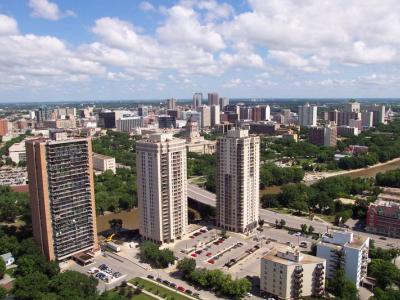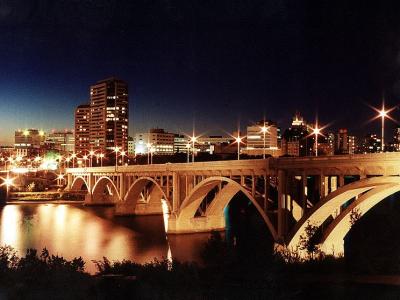Alberta spans great, contrasting sceneries of mountains, forests and prairies. It offers the visitor six UNESCO World Heritage sites, preserving mountain vistas, the Wood Buffalo National Park (the world's largest inland delta and largest protected boreal forest), Dinosaur Provincial Park (one of the world's great dinosaur fossil beds), historic Indigenous rock art (at Writing-on-Stone Provincial Park), and buffalo hunting sites (Head Smashed In Buffalo Jump). And for sports fans, this is the home one of the world's greatest rodeos every July in Calgary, two famous professional ice hockey teams, and one of the longest ski seasons in the northern hemisphere. Like colder versions of other oil towns (Houston comes to mind), the burgeoning cities of Edmonton and Calgary are adding new skyscrapers, museums, art galleries, concert venues, and libraries as these cities are still very much in their youth.
Beyond the Rockies, Alberta offers a stunning assortment of landscapes, like the almost-lunar "badlands" of Dinosaur Provincial Park
Alberta, Canada's fourth largest province by size and population, stretches from British Columbia at the Rocky Mountains in the west, to Saskatchewan in the east and from the Northwest Territories in the north, to Montana, U.S.A. in the south.
Alberta is a huge province, about three times the size of the United Kingdom (from where many of its people can trace a heritage) or nearly as large as Texas (with which is shares a historic connection though the cattle and petroleum industries). In this huge expanse of territory, only four million Albertans reside, and about half of those live in just the two main cities of Calgary and Edmonton, with most of the rest of population clustered near the main highways. The rest of the province has a tiny population, but is far from empty: on this land you will find Indigenous cultures that have survived here for thousands of years, rural settlements with a proud pioneering history, and new immigrants arriving daily from all corners of the world in one of the developed world's wealthiest and fastest-growing regions (despite an economic downturn in the 2010s).
Alberta is not well known by non-Canadians, but if you do know much about it you might associate the province with the Rocky Mountains (which in truth are only found along Alberta's western boundary), perhaps the 1988 Winter Olympics which were held in Calgary, the cowboy country of Southern Alberta, or the controversial "oil sands"/"tar sands" of Fort McMurray.
In a province as large and dynamic as Alberta, there shouldn't be any problem finding enough to see and do, no matter what your travel style is.


